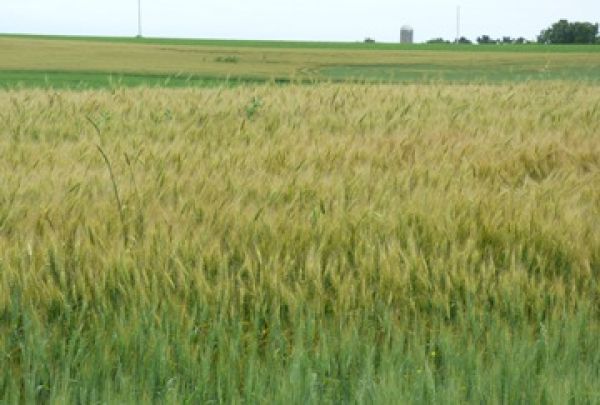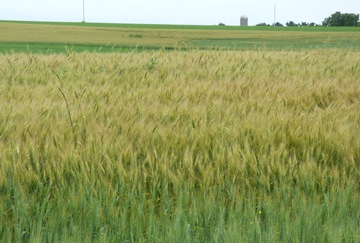
You only need farmers when you’re hungry!
 “Well, I suppose we don’t need farmers much. Just three times a day.”
“Well, I suppose we don’t need farmers much. Just three times a day.”
That’s a comment I’ve heard many times from Orion Samuelson – the voice of agriculture in America since 1960 when he became farm service director at WGN radio in Chicago.
Samuelson, who lives in Huntley, still hosts farm programs on the radio and cable television with co-host Max Armstrong.
This time of year, while travelling slowly down Route 14 behind a piece of farm equipment, I often think back on a talk I heard Samuelson give several years ago.
Samuelson has long been an advocate for farmland preservation. From a practical standpoint, he believes that the community will not succeed at saving local farmland until “we” put our money where our mouths are. That is, until the members of the community start making different decisions about land use, about where we choose to live, and about whether or not we are willing to fund the preservation of agricultural resources locally.
He admitted to being “part of the problem” for choosing to move from Northbrook – an older, well established community – to Sun City in Huntley, an area that was, until 20 years ago, a farm.
Farmers comprise about two percent of the local (and national) workforce. Yet, what other industry touches everyone’s life so profoundly? When you eat, you are eating things that were grown, raised or produced by farmers somewhere. Those farmers may be in China, or here in McHenry County, but if you eat, you need farmers. Where will our food come from if all of the farms turn into subdivisions and strip malls?
I once heard Samuelson say that if we do not take steps to preserve farmland in the United States, there will come a day when all of our food products are imported from around the world. He pointed out that, despite some problems, the United States has the safest food supply in the world today. If we become dependent upon foreign nations for our food, we will be unable to control the quality, safety, or supply of food.
Personally, I do not want to rely upon the policies, politics and practices of another country for my dinner – a country where I have absolutely no control over what happens to the food supply produced there.
Bottom line is, we have to eat, and food doesn’t come from the grocery store – it comes from farms and through the hard work of farmers.
People may move to the country to leave urban problems behind – to get more breathing room, and improve the quality of their lives. But when people then complain about the odor of manure, dust from the farm fields, or slow moving farm equipment on public roads, they fail to understand the benefits that come along with the minor inconveniences. Benefits like food.
Samuelson once suggested having a welcome wagon for all newcomers to the “country.” A pie made from local apples and a pamphlet explaining that there are smells, sounds, and sights in these rural areas that will be foreign to the transplants, but it is all part of the deal. If you want to eat three meals a day, please, embrace the farmland and all that comes with it.
If you would like to support local farmers growing food on local farmland, please visit a farmer’s market, purchase a farm-share from a local vegetable farm, and check out the Food Shed Co-op’s website: foodshed.coop. The Co-op is a project to establish a full-service grocery store in McHenry County that is member-owned and features locally-grown food products. The co-op, through the store and its educational programs, will promote and foster better food choices, cultivate and strengthen our local economy, inspire and empower community, and champion environmentally responsible practices.